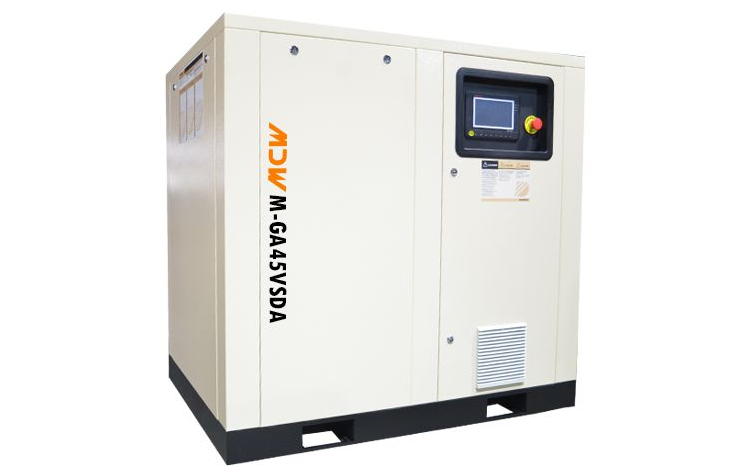Basic Principle and Application of Permanent Magnet Air Compressor
With the rapid advancement of modern industry, the need for efficient and reliable energy solutions has become increasingly urgent. In response, permanent magnet air compressors have emerged as key players in driving the energy efficiency revolution. This article delves into the principles, technical features, application areas, and future development trends of permanent magnet air compressors, offering readers insight into this innovative energy solution for industrial production.
Fundamentals
A permanent magnet air compressor leverages advanced permanent magnet synchronous motor (PMSM) technology, making it more efficient than traditional compressors. At the heart of this system is the permanent magnet synchronous motor, which features permanent magnets installed on the rotor. This design allows the motor to operate with greater efficiency and across a broader range of speeds.
These compressors typically incorporate variable frequency speed regulation technology, which intelligently adjusts motor speed based on the compressor's real-time operational needs, resulting in significant energy savings. The PMSM is directly connected to the compressor’s air end, eliminating the energy losses associated with traditional belt drive systems and enhancing transmission efficiency.
Furthermore, advanced permanent magnet air compressors are equipped with intelligent control systems that monitor the compressor's operating status in real time, enabling smart scheduling and fault diagnosis. This improves both the reliability and efficiency of the equipment.
Permanent magnet air compressors offer higher efficiency compared to traditional compressors, significantly reducing energy consumption and supporting energy conservation and environmental protection efforts. The broad operating range of the permanent magnet synchronous motor makes these compressors adaptable to various loads and operating conditions, enhancing system flexibility.
Additionally, the operational characteristics of permanent magnet synchronous motors result in lower noise levels, creating a quieter working environment. With higher power density than traditional motors, permanent magnet air compressors can be designed more compactly, making them ideal for space-constrained applications. Moreover, since the permanent magnet synchronous motor does not require external excitation, it avoids the excitation losses seen in traditional motors, thereby improving system reliability and stability.
Application Areas
Permanent magnet air compressors are extensively used across various industries due to their efficiency and reliability.
- Manufacturing: They are commonly employed to supply compressed air for factory production lines, meeting the air requirements of various equipment and tools.
- Chemical Industry: The demand for high-quality, stable compressed air in the chemical sector is substantial. Permanent magnet air compressors are favored for their efficiency and robust reliability.
- Medical Equipment: In medical settings, these compressors are used to provide air sources, with their low noise and high efficiency contributing to a quiet and stable environment.
- Food and Beverage Production: Permanent magnet air compressors help control gas flow during production processes, ensuring product quality and safety.
- Transportation: In the transportation sector, they are used to supply the compressed air needed for vehicle braking systems, with their high-efficiency performance contributing to improved vehicle energy efficiency.
In the future, permanent magnet air compressors are likely to become more intelligent, incorporating advanced sensing and internet technologies for remote monitoring and fault prediction. By integrating multi-energy technologies, these compressors could work alongside renewable energy sources and energy storage systems to enhance energy synergy and improve overall efficiency.
As technology continues to advance, permanent magnet air compressors are expected to find applications in emerging fields such as new energy vehicles and aerospace. Future designs will likely prioritize environmental sustainability, using eco-friendly materials and energy-saving technologies to align with the global trend toward sustainable development.
Additionally, as the technology matures and market competition increases, the manufacturing costs of permanent magnet air compressors are expected to decrease, making them more accessible and widespread.
Conclusion
Permanent magnet screw air compressors, as leaders in the energy efficiency revolution, offer efficient and reliable energy solutions for industrial production through advanced permanent magnet synchronous motor technology and intelligent control systems. By gaining a deep understanding of their principles, technical characteristics, application areas, and future development trends, we can better appreciate these pioneers of energy innovation and guide their future development in a more scientific and sustainable direction. As energy challenges become increasingly critical, permanent magnet air compressors will continue to foster a more efficient and dependable industrial production environment, driving the industry toward a sustainable future.

Comments
Post a Comment